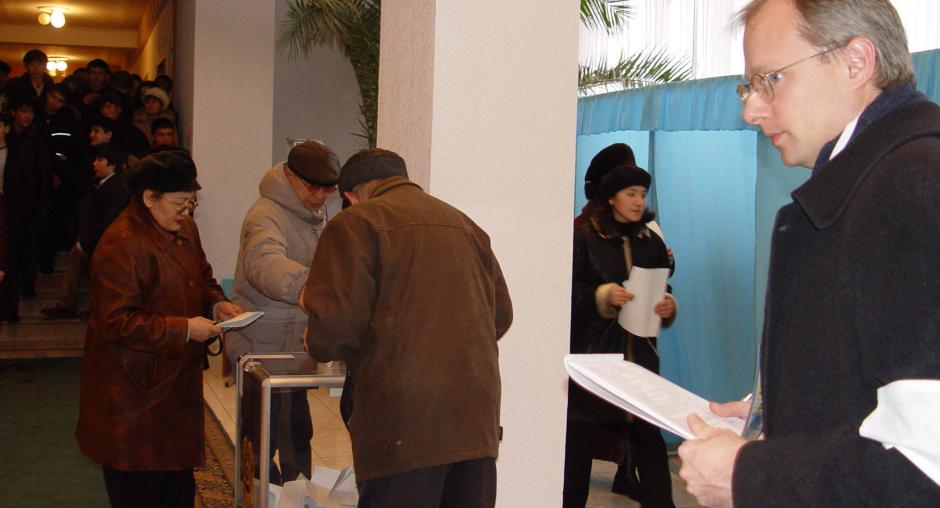Presidential Election, 4 December 2005

Type:
Country:
Mission at a glance
- Head of Mission: Amb. Audrey Glover (United Kingdom)
- 13 core staff in Almaty and Astana
- 28 long-term observers deployed to regional centres
- 400 short-term observers requested
- Core team and long-term observers drawn from 19 OSCE participating States
Mission schedule
- 17 Oct: Mission opens with arrival of the core team
- 23 Oct: Briefing of long-term observers
- 24 Oct: Deployment of long-term observers
- 30 Nov: Arrival of short-term observers
- 4 Dec: Election day
- 5 Dec: Press conference
In response to an invitation from Kazakhstan's Foreign Ministry, ODIHR deployed an election observation mission for the 4 December presidential election.
Headed by Ambassador Audrey Glover of the United Kingdom, the mission consisted of 13 international staff based in Astana and Almaty and 28 long-term observers deployed throughout the country.
For election day, the mission was joined by 411 short-term observers, including 45 representatives of the OSCE Parliamentary Assembly, seven from the Parliamentary Assembly of the Council of Europe, and 16 from the European Parliament.
According to the mission's final report: "The 4 December presidential election was the second multi-candidate election in the Republic of Kazakhstan since independence in 1991. A field of five candidates were registered through a process which was mostly inclusive and provided voters with an opportunity for choice. However, a number of significant shortcomings during the election campaign limited the possibility for a meaningful competition whereby all candidates could enjoy equal opportunities to convey their views to the electorate. Such shortcomings occurred despite the 9 September Presidential Decree on Realization of Election Rights of Citizens of the Republic of Kazakhstan instructing various State authorities to ensure free, fair and competitive elections.
"Shortcomings included undue involvement of the authorities in the election campaign, undue restrictions on campaigning, cases of harassment of campaign staff and an atmosphere of intimidation. While venues for indoor campaign events were allocated to all candidates, requests for outdoor meetings were rarely approved by local executive authorities. Meetings of opposition candidates were on occasion disrupted. There was reported pressure on workers of some state and private companies, and on students, to vote for the incumbent. Statements by the Minister of Interior and National Security Council alleging the opposition was preparing for violent action further heightened tensions prior to election day."
